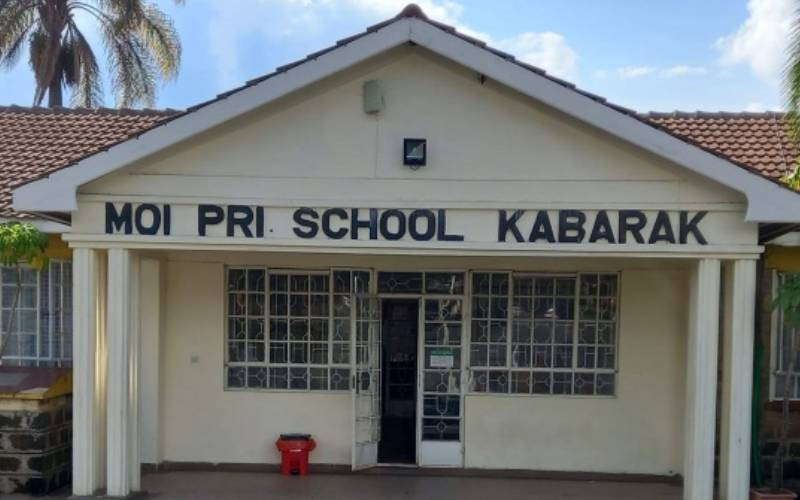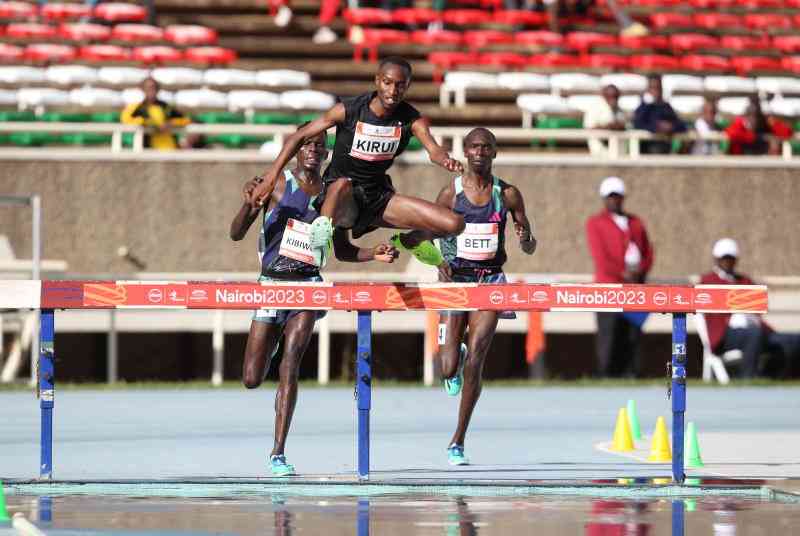In March last year, Mwalimu Sacco got the go-ahead to buy a 75 per cent stake in Equatorial Commercial Bank (ECB).
When it was first announced, the transaction grabbed headline, and even became the subject of a regulatory inquiry.
The purchase cost the teachers’ savings and credit co-operative — the country’s largest Sacco — Sh2.6 billion.
CEO Robert Shibutse, spoke to Business Beat about the thinking behind the acquisition, and teachers’ plans for the bank.
Sacco members approved the plan to buy a stake in ECB in September 2014, making it the first time a Sacco would buy a controlling stake in a commercial bank.
However, ECB’s loss-making position at the time and new regulatory rules on capitalisation of small banks soon saw the board of Mwalimu Sacco accused of making an imprudent investment.
It did not help matters that Mr Shibutse, who was appointed CEO of Mwalimu Sacco in April 2014, had previously been CEO at ECB, which was owned by billionaire businessman Naushad Merali.
Profit warning
“The decision to buy a controlling stake in a bank started in 2008 when the Sacco realised the scale of operations made it necessary for us to match the scale of our services output,” said Shibutse.
In 2014, Mwalimu Sacco’s net operating income stood at Sh4.3 billion, a 35 per cent rise from Sh3.2 billion in 2013. The Sacco has yet to release its 2015 financial results, though it announced in a press statement last week that its profits would be 25 per cent lower than the previous year.
“As a Sacco we dispense a lot of money in terms of loans, dividends and other remittances to members all over the country, excluding other transactions like cheque transfers,” Shibutse told Business Beat.
“This means we have to spend a lot of money paying transaction fees to intermediary banks, which is expensive and also inconvenient to our members.”
In 2014, for instance, operating expenses rose 30 per cent to Sh3 billion from Sh2 billion in 2013.
“Secondly, as a Sacco, there are times in the year we have excess liquidity and at other times we need more liquidity, but we cannot access inter-banking facilities because we are not a commercial bank.”
Mwalimu Sacco’s first option was to wholly purchase a bank, but this was dismissed because no bank would be willing to sell out, and the cost would be prohibitive.
“The second option was to convert into a bank, which we could not do since we did not desire to change our key mandate — to advance cheap credit to teachers,” said Shibutse.
After considering several prospects, including K-Rep Bank, Oriental Bank and Guarantee Trust Bank, the board settled on ECB, he said.
ECB has traditionally been considered a corporate lender, and in 2014, posted an after-tax loss of Sh326 million on the back of bad loans. The bank was formed in 2010 after a merger between Equatorial Commercial Bank and Southern Credit Bank, after the Central Bank of Kenya (CBK) began pushing for the consolidation of smaller banks. At the time, it had assets worth Sh8 billion.
Rekindled debate
Shibutse said the balance sheet of ECB is healthier than has been previously reported, and that the Sacco has a strategy to turn the bank around using the leverage of its 70,000-member teachers’ savings group.
“Through the acquisition of ECB Group, we got a brokerage firm that has been profitable since 2014, and at the same time, ECB Holdings owns 23.8 per cent of Fidelity Insurance, which is another healthy firm, so the issue of the acquisition price tag having been inflated is not accurate,” he said.
The CEO added that the board was considering selling its stake in Fidelity, although it was not in a hurry to offload the shares.
“Currently, a lot of our insurance is done by CIC Insurance, where we also have some shareholding, but we might be moving this business to our other insurance holdings where we have a larger stake.”
He added that the same strategy could be employed to help turn the fortunes of the bank around.
“The value of all the loans advanced to teachers just in the main commercial banks they use — Co-operative Bank, National Bank, KCB and CfC — is more than Sh40 billion, and we could ask teachers to move these facilities to ECB,” the CEO said.
Mwalimu Sacco’s acquisition of ECB rekindled debate on the role of large Saccos, such as Stima, Harambee and Police, whose balance sheets exceed those of some commercial banks.
According to the World Bank, Kenya has been relying on foreign direct investment funds to propel growth. Yet, the steady stream of foreign investments enjoyed 10 years ago is drying up, and the country needs to build its domestic savings to finance future growth.
“Compared with other fast-growing economies, Kenya invests less, and the share of investment financed by foreign savings is higher,” the bank said.
“The economic literature and post-World War II history illustrate that investment determines how fast an economy can grow. Kenya’s investment, at around 20 per cent of GDP, is lower than the recommended benchmark of 25 per cent of GDP.”
Kenyans have cited the interest rates levied by commercial banks on personal loans as prohibitive, and thus a disincentive towards keeping their saving in these accounts. According to the Kenya Deposit Insurance Corporation (KDIC), 96 per cent of Kenya’s 31 million bank accounts hold demand deposits that are below Sh100, 000.
Mwalimu Sacco grew its members to 70,000 last year, and has an asset base of Sh33 billion. These assets are worth more than what several banks, including Ecobank Kenya, Gulf National Bank, First Community Bank and Consolidated Bank of Kenya, hold.
Shibutse said the ECB acquisition is proof that Saccos have come of age, and the Government needs to offer the right regulatory support to facilitate their growth to remedy the country’s low savings rate.
“We want the playing field to be levelled, and Sacco societies given their own dedicated ministry as was the case in the past,” he said.
“We are the only financial sub-sector that is under the Ministry of Industrialisation, while insurance companies, commercial banks, micro-finance institutions and brokerage firms are all under the Treasury.”
[email protected]
 The Standard Group Plc is a multi-media organization with investments in media
platforms spanning newspaper print operations, television, radio broadcasting,
digital and online services. The Standard Group is recognized as a leading
multi-media house in Kenya with a key influence in matters of national and
international interest.
The Standard Group Plc is a multi-media organization with investments in media
platforms spanning newspaper print operations, television, radio broadcasting,
digital and online services. The Standard Group is recognized as a leading
multi-media house in Kenya with a key influence in matters of national and
international interest.
 The Standard Group Plc is a multi-media organization with investments in media
platforms spanning newspaper print operations, television, radio broadcasting,
digital and online services. The Standard Group is recognized as a leading
multi-media house in Kenya with a key influence in matters of national and
international interest.
The Standard Group Plc is a multi-media organization with investments in media
platforms spanning newspaper print operations, television, radio broadcasting,
digital and online services. The Standard Group is recognized as a leading
multi-media house in Kenya with a key influence in matters of national and
international interest.









